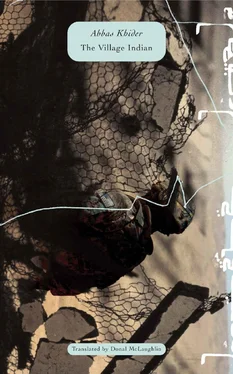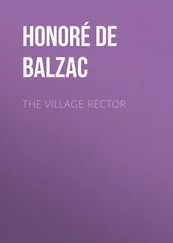It works like this. The boy goes out for a walk. The girl sits outside her front door or stands at the window. The boy looks at the girl. If she returns his look, gently and somewhat embarrassed, often also smiling imperceptibly, the boy winks at her. This means ‘I like you.’ If the girl is still smiling, the boy knows it has worked. He walks on, relaxed, along other streets, before returning to the girl. If she’s still there, he turns his face to the right or the left. This means, ‘Follow me!’ Now, one of three things can happen. Either she follows him until they’ve left the neighbourhood and can speak to each other and agree, if possible, to meet for longer. Or she throws a piece of paper at him on which she’s noted the time and place of a possible rendezvous. Or she nods at her bosom. This means, ‘Come closer!’ If so, the boy goes for another stroll so that no one can see what he’s planning. When he then goes past the girl for the third time, he keeps his ears pricked for she’s about to whisper the time and place of their rendezvous.
This third happened to me one summer afternoon with a girl whose name I never learnt. She had wonderful black eyes and gorgeous, big breasts. She lived in another part of town, about thirty minutes’ walk from ours. She whispered to me, ‘Tonight, at midnight, on the roof.’ I spent that whole afternoon and evening nervous and excited and waiting for my writing urge to kick in. I even sneaked out to the bazaar for a few sheets of paper from the shop. That night, I walked round her neighbourhood, strolling past her house every half hour or so, looking up at the roof. I couldn’t wait for her to appear up there and nod to me. Shortly after midnight, she finally turned up and signalled at me to climb up and join her. The house was only a few metres high and had enough windows to make the climb easier. It took me a while, though, for I had to keep making sure that no one spotted me.
Finally, standing on the railing, I spotted her — smiling — next to a pigeon cage. She had an incredibly attractive dress on. Or was it a nightdress? — she was half naked. The wall round the roof was about six feet high. When I jumped off, there was a loud thump. And almost immediately, from below, an angry voice screeched, ‘What’s that? Who’s there?’ Suddenly, the girl began to run in circles like a madwoman, and shout, ‘Help! Help! A thief! He’s stealing the pigeons!’ Completely thunder-struck, I stared at her, unsure of what to do. ‘Run, stupid!’ she hissed at me finally, ‘Get out of here!’
In one leap I landed onto the neighbour’s roof which was a little lower. And from there down to the street. And then, swift as an arrow, off towards my part of town. Behind me, I could hear furious voices. I glanced back once and saw a crowd of men and boys running after me. Some even waving knives and sticks. I galloped through the streets like a horse gone wild but couldn’t shake off the mob. Only once I’d reached my neighbourhood did I dare turn round again. Nothing! Thank God! Sweaty and exhausted, I made my way home. Never again did I return to that district.
Despite that adventure, new attractions sprang up to tempt me and to make me surrender to my mad urge to write. The women in the streets grew more and more seductive with each passing day and my temple dream refused to go away. I continued to steal paper from the shop and to write, until the day came when I had to leave behind the women of Baghdad, Baghdad itself and the date paper.
I reached Amman. Not as a holidaymaker but as a refugee. It was a difficult place for a refugee but one always finds a way. Amman was a small town though its gentle hills and mountains made it seem bigger. You were always going uphill or downhill. Going up, you felt that someone was clinging to your arse and pulling it back, so you had to stick your neck out. Going downhill, though, you felt the complete opposite; as if, with all their might, someone was pushing your arse forward. In this uphill-downhill town, I finally succeeded in finding a job. In a cosmetics factory, a little outside town. Removing the wet soap curds from the machines, laying them out in the sun to dry, then gathering them up and taking them back to the machines.
The factory was co-owned by a few businessmen. British, they were. One of Iraqi descent. It was also full of beautiful women. The most beautiful of all, Suad, had a breathtaking arse and an almost divine bosom. She worked at one of the machines to which I took the dry curds. My very first day at work, and the urge to write came upon me again, especially when I watched Suad secretly undo the top button of her blouse and then strut up and down before the manager, showing off her cleavage. At such moments, I felt as if I’d returned to a distant past, to the temple, to the priest’s daughter, to her bosom. The same tremor, the same quiver, all over my body. The desire to write grew boundless but had not the tiniest bit of paper. On a table I noticed a small parcel — falafel wrapped in paper. It belonged to Suad. On the spur of the moment I took the paper. It was my favourite writing paper in Amman.
I was soon good friends with Suad. She told me she also wanted to write but just for herself. She was from Palestine but had Jordanian citizenship. Her family had to leave Palestine in the forties when Israel began to exist on the map. Suad’s father fought for some banned Palestinian organization that wanted to free Palestine from the Israelis. One day, he was found dead in the street, along with his eldest son. Suad had just turned two. His mysterious death remained unexplained. Suad didn’t like talking about it though she told me once that the Jordanian government was responsible. ‘This government is a disgrace!’ Immediately after her exams, poor Suad had to begin working at the soap factory. To keep herself and her mother afloat. Of her dream of becoming a lawyer, she simply said, ‘I’ll have to forget about that!’
It soon became clear to me that I’d fallen in love with Suad and her fate. A close friendship grew between us. We began going out, mostly to the cinema, and spent a lot of time together. We even wrote poems to each other. I never showed Suad my most important poems from that period, though, for they’d been inspired by her body. And they’d been written in the grip of that indescribable tremor and quiver. I didn’t say a word about that either, of course. I simply rejoiced at every day that let me see her sad black eyes.
You can imagine how much paper I used up. I wasn’t in a position to buy it, of course. My salary was just about enough to live on — where was I to find the money for paper? I got it from the bins or from the many falafel or kebab stands. Once, I even pinched a whole pile from a snack bar when the waiter stepped into the kitchen.
I wrote for more than seven months, almost daily. It’s not as if that in any way means everything was okay. I could no longer remain in Jordan. True, I did have a six-month residence permit but — like all Iraqis who came to Jordan in the nineties — I didn’t have a work permit. I had to hide whenever the factory was inspected. Jump over the factory wall and run — as far as possible, as quickly as possible. After your first six months in Jordan, you have to pay the government a dollar per day or be deported to Iraq. But who can afford that?
I’d passed the six-month mark long since. Suad was very sad when I left Jordan but I was sadder still. How I would have liked to tell her I loved her but my courage abandoned me. And so, I left Suad in her substitute homeland and set out to find one for myself.
My poems for Suad and her poems for me I left with her, as my farewell gift. But those I’d written secretly, on falafel and kebab paper I took with me, of course. During my six-day trip, by bus and ship from Asia to Africa, I leafed through them again and again and every word reminded me of my beloved Suad. I wrote her a long letter in which I vowed my love for her. I kept it with me for a long time until, one day, like in a romantic film, I put it into a bottle and threw it into the Mediterranean. Did it ever reach its addressee?
Читать дальше












